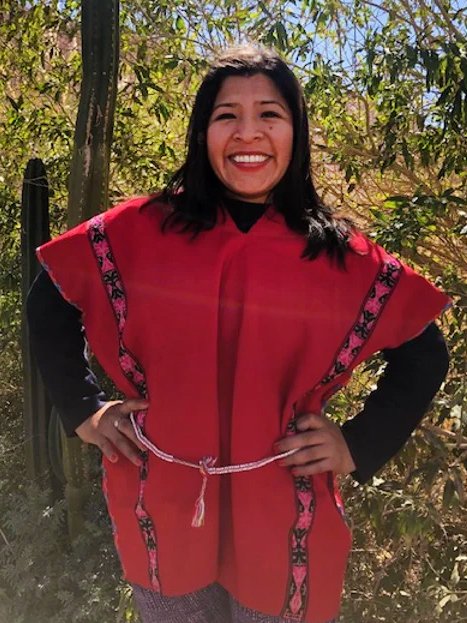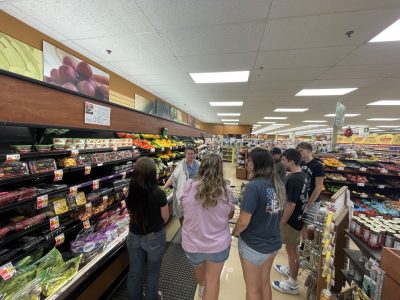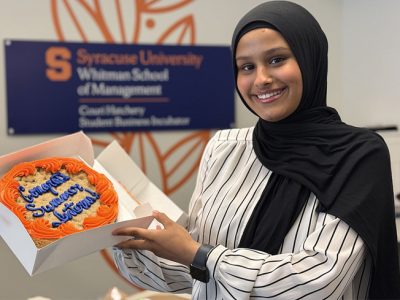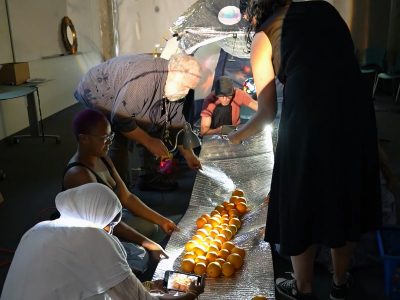Indigenous Studies Researcher Advises the United Nations on Inequalities in Food Security and Nutrition
Mariaelena Huambachano is an Indigenous scholar, native to Peru, with Quechua ancestry, who also lived for many years in Aotearoa, the Indigenous name for New Zealand. There she completed her undergraduate and graduate studies and formed long-lasting relationships with Māori, the Indigenous people of New Zealand. She joined Syracuse in 2021 as an assistant professor to help build the Global Indigenous Cultures and Environmental Justice Center (CGIC). Courses taught by Huambachano include food fights and treaty rights, Indigenous food cosmologies and reclaiming Indigenous intellectual sovereignty. She is a faculty affiliate across several programs and departments in the College of Arts and Sciences (A&S) and Maxwell School of Citizenship and Public Affairs including the Moynihan Institute of Global Affairs, the Department of Women’s and Gender Studies, Democratizing Knowledge Collective and the Program on Latin America and the Caribbean.
Food is often seen as a basic human right, but millions do not have food security because of factors like poverty, lack of access to affordable and nutritious food, inadequate social safety nets and environmental challenges. This is worse for vulnerable and marginalized people, like many Indigenous communities around the world. Huambachano is serving on her second United Nations (UN) High-Level Panel of Experts (HLPE) on food security and nutrition providing evidence-based recommendations to policymakers. She calls this her “labor of love.”
The HLPE is the science-policy interface of the UN’s Committee on World Food Security (CFS). This group of experts develops a comprehensive report on how food system inequalities contribute to food insecurity, hunger and malnutrition. It also provides the CFS with recommendations on how to address these inequalities because, the report notes, these disparities diminish the quality of life and productivity, perpetuate poverty and hinder economic growth for the affected communities.
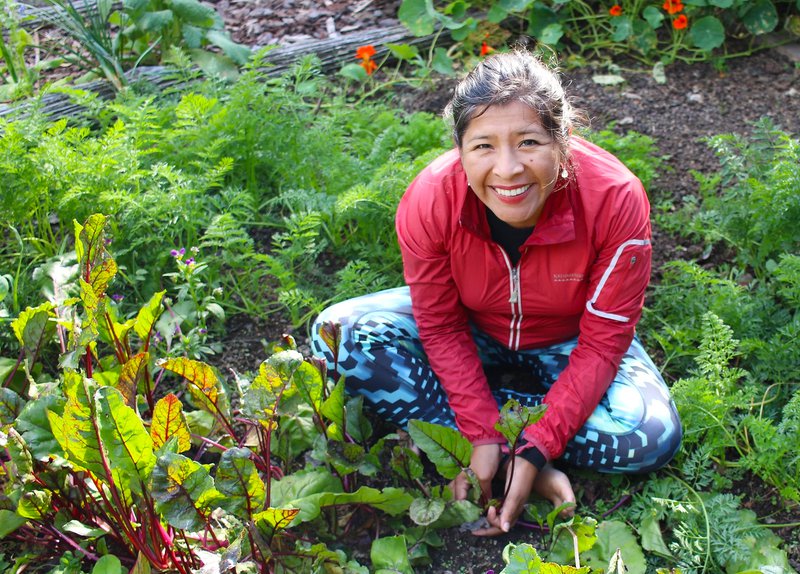
We spoke with Huambachano to discuss her teaching and scholarship at A&S as well as her work for the UN.
